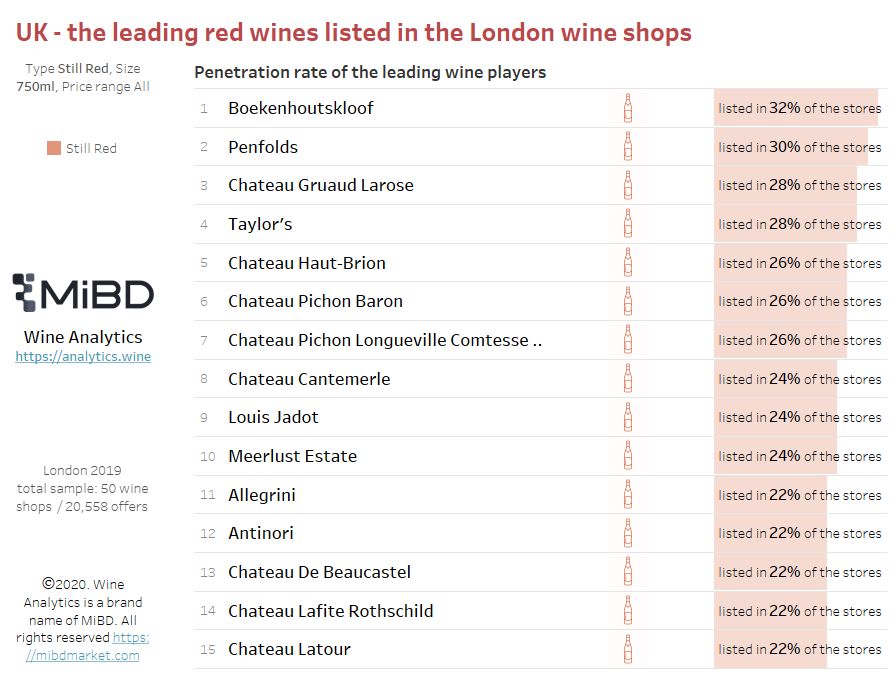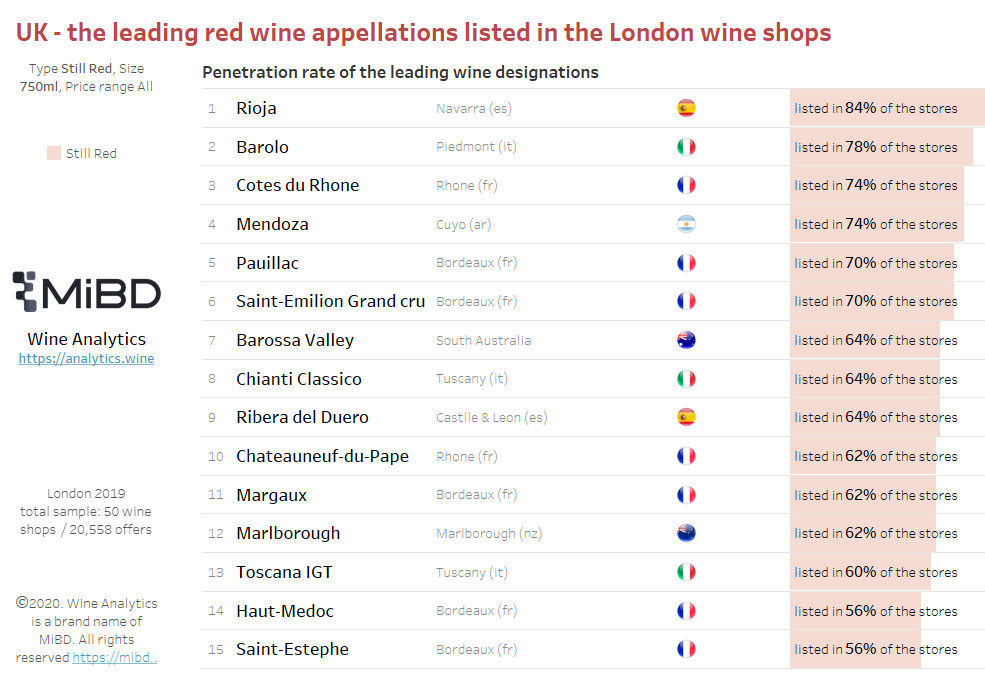Wine bands that in the past relied primarily on the restaurant and travel channel to increase their visibility and popularity with consumers were often considered to be the most innovative and successful.
The Covid-19 pandemic is poised to transform the way wine companies activate and communicate their brands, moving away from on-premise to retail and, in particular, to e-commerce and social media.
Restaurants will continue to play a key role. However, the balance between the importance of on-premises versus off-premises and e-commerce channels will become much more nuanced in the coming years.
Brand owners understand this importance, and restaurants reopening their doors can benefit from considerable strategic support and resources from brand owners. Diageo’s “Raising the Bar” program, for example, will provide US$100 million to support the re-establishment of major hospitality centers around the world.
We have analyzed red wines listed in the independent shops of London, UK.

1. Boekenhoutskloof
2. Penfolds
3. Chateau Gruaud Larose
4. Taylor’s
5. Chateau Haut-Brion
6. Chateau Pichon Baron
7. Chateau Pichon Longueville Comtesse de Lalande
8. Chateau Cantemerle
9. Louis Jadot
10. Meerlust Estate
11. Allegrini
12. Antinori
13. Chateau de Beaucastel
14. Chateau Lafite Rothschild
15. Chateau Latour
Pernod Ricard UK has produced a guide – “Back to Work in the New Normal” – to help British restaurants reopen safely, and its subsidiary Pernod Ricard has compiled a series of video interviews with leading restaurant owners under the banner “Changes are norm”. A company spokesperson emphasizes that Pernod’s decentralized organizational model is essential to finding local responses to individual market conditions.
Bacardi has put in place a program of support, research and resources to help restaurants reopen safely and sustainably. Gains in stores and e-commerce do not compensate for losses in bars, restaurants and the travel industry.
However, the long-term consequences of the short-term transformation of business models brought about by the pandemic are beginning to be felt. Brown-Forman Corporation said the company is reallocating funds away from restaurants and toward mainstream media. It’s a rebranding that’s happening there.

1. Rioja
2. Barolo
3. Cotes du Rhone
4. Mendoza
5. Pauillac
6. Saint-Emilion Grand Cru
7. Barossa Valley
8. Chianti Classico
9. Ribera del Duero
10. Chateauneuf-du-Pape
11. Margaux
12. Marlborough
13. Toscana
14. Haut-Medoc
15. Saint-Estephe
Such actions reflect a seismic shift in corporate attitudes towards digital activities. Until now, many brand owners viewed online storefronts primarily as an extension of their marketing department. But they now recognize that it is much easier to build closer relationships with consumers and stimulate purchases, while having access to valuable data about who their consumers are, what they are buying and how they are buying it.
The new balance between restaurants, retailers and e-commerce channels will force brand owners to think more creatively about their product strategies and how they diversify their sales channels.